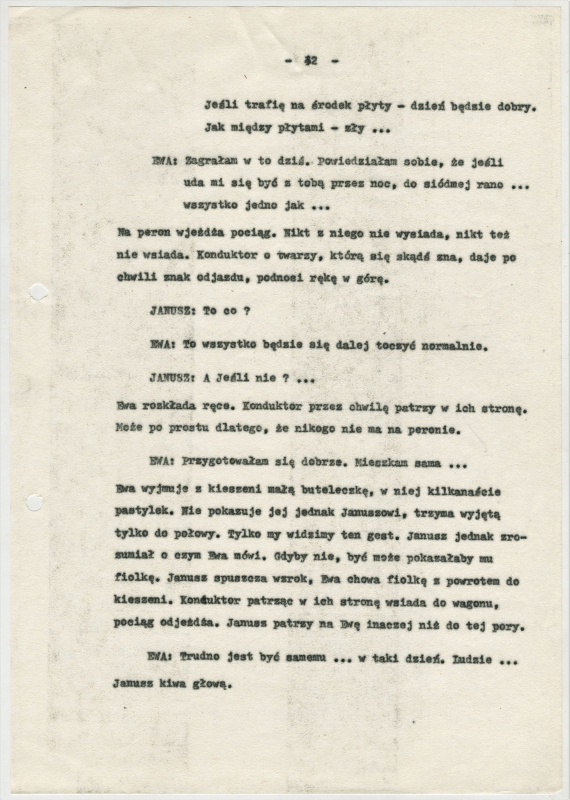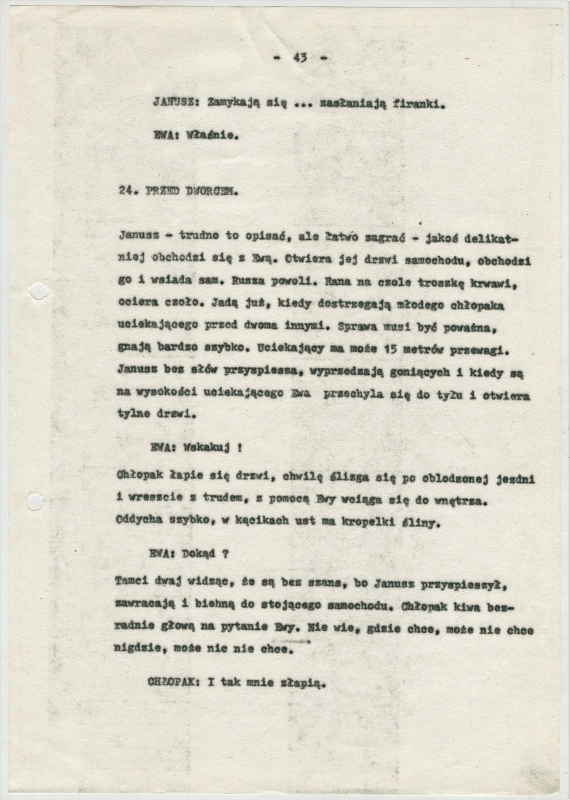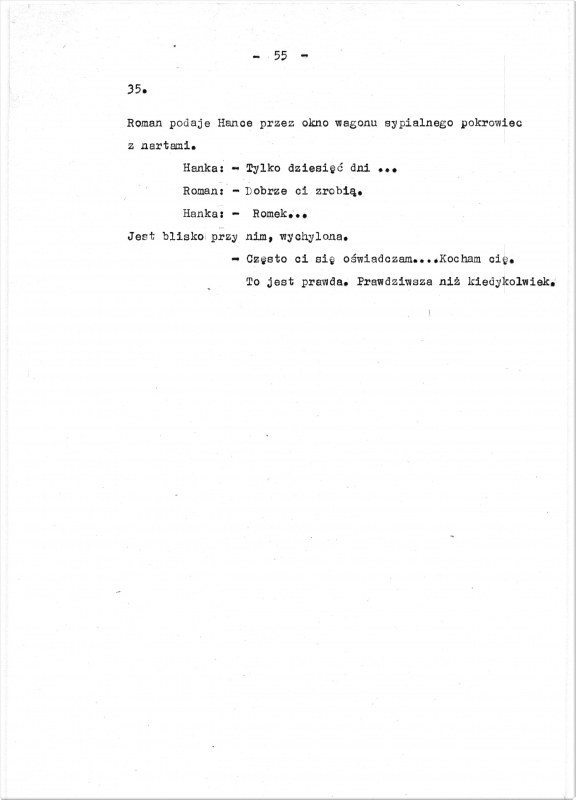Central Railway Station
Located in the very heart of Warsaw, the Central Railway Station is the city’s main train hub and the largest railway station in the country. It was completed in 1975 and quickly became a symbol of the capital.
Decalogue Three
A railway worker rolling around the platforms of a deserted train station in the middle of a large European capital on a skateboard is a unique and unexpected depiction of Christmas night. It’s as if the world—and with it, the trains—have come to a halt. Families have settled into the cozy comfort of their homes decked with holiday decorations. Among them are the main character Janusz (Daniel Olbrychski) and his loved ones. But for lonely people like Ewa (the other main character in this episode, played by Maria Pakulnis), Christmas Eve is a night of acutely painful loneliness and isolation. “It’s hard being alone on a night like this,” she says, explaining why she used a ruse to get him out of the house. This bitter Christmas story is replete with similar images. The lone boy running out of the hospital towards a Christmas tree festooned with lights, standing in the street, is a reconstruction of a scene witnessed by the co-author of the screenplay. The woman working at the train station’s monitoring center brings to mind an almost identical character in Kieślowski’s documentary short Railway Station (1980), which is woven out of myriad brief observations of (mostly hostile) human behavior.
Decalogue Nine
The brief scene in which a husband and wife (Piotr Machalica and Ewa Błaszczyk) say goodbye at a train station echoes similar events in Kieślowski’s earlier films: Camera Buff and Blind Chance A feature-length version of this story about a tragic love triangle is said to have been in the works under the likely title A Short Film about Infidelity. It would have been the third cinematic adaptation in the series, after episodes five and six. The movie was never produced, however. The final scene of Decalogue Nine offers hope that Roman and Hanka will overcome their marital crisis and reach a happing ending. After surviving a near-fatal bicycle accident, the husband calls his distraught wife from the hospital. Both of them are happy to hear each other’s voices in the receiver. In an early draft version of the screenplay, described in the May 1985 issue of a cataloging of proposed TV productions, the story ends in tragedy: Roman’s wife leaves on her ski trip, and he commits suicide by ramming his car into a concrete wall. The cinematography of Decalogue Nine was done by Piotr Sobociński, who also worked as a cameraman on Decalogue Three. The remaining episodes in the series were each shot by different cameramen, which was Kieślowski’s creative intent from the start. Only two of them had previously worked with the filmmaker on a movie: Sławomir Idziak (Decalogue Five) and Krzysztof Pakulski (Decalogue Four).
Mikołaj Jazdon
The Ninth Commandment:
You shall not covet your neighbor’s wife.
The harms of jealousy
In the original biblical text, the ninth and tenth commandments together form a single sentence: “You shall not covet your neighbor’s house, (…) your neighbor’s wife, (…) or anything that belongs to your neighbor.” At the heart of the commandment lies the person who is being deprived of the many things that make up his world: his wife, his house, etc. The text makes numerous mentions of our “neighbor.” Unlike the seventh commandment (“You shall not steal”), the ninth and tenth are not about property, but about the relationship that the intruder violates, often irreversibly, by coveting people and things. The Latin tradition placed violations of marital relations (9) in its own sentence, separate from other domestic violations (10). In order to retain the number 10, the opening sentence of the Decalogue (“I am the Lord your God”) was made the title of the list of commandments.
The ninth commandment—and, with it, Kieślowski—challenge the possibility of an absolute relationship, even within love. Every love is threatened by a “triangle.” The third person—in the film, the Student—is single, but he trespasses into his neighbor’s life. He does so carelessly, because he’s care-free, loved and in love. He’s not entirely aware of what he’s violating. But he certainly breaks the ninth commandment. She attempts to save her husband from jealousy. Though she is loyal to her feelings for both men, she firmly strives to tie up all the loose ends in her life. But the infection has taken hold. Her husband gazes helplessly at an “innocent girl” playing in the concrete lot of the housing complex: “Sleep, little baby…”. The audience—and the Husband, most likely—are gripped by the gnawing sadness of witnessing the girl’s helplessness. Even the Angel looks on helplessly. Because even though “love is as strong as death,” jealousy is “unyielding as the grave,” the Song of Solomon tells us.


